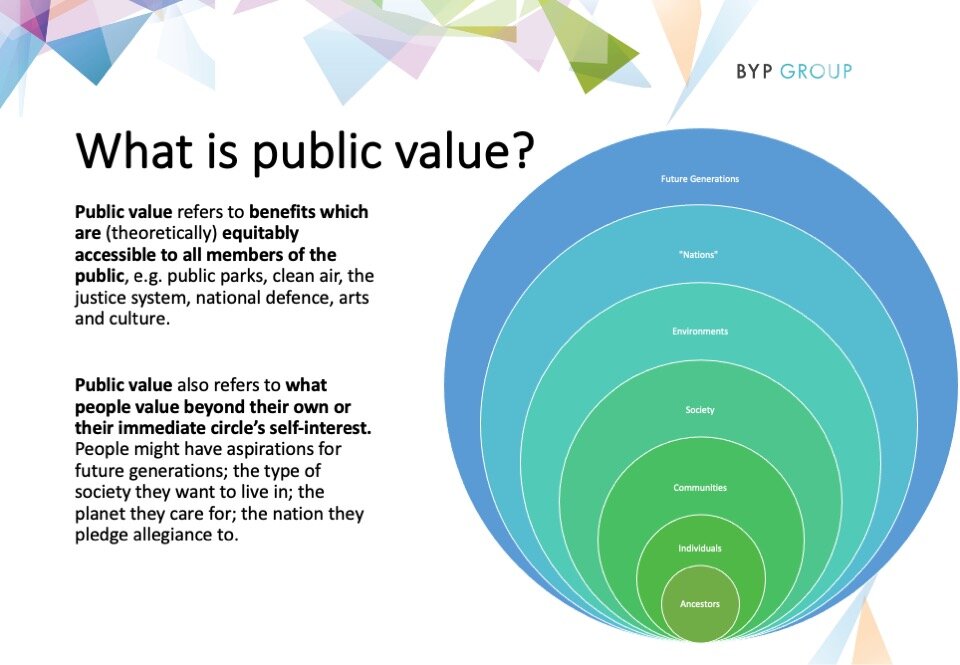I define public values as follows.
Public value refers to benefits which are (theoretically) equitably accessible to all members of the public, e.g. public parks, the rule of law, clean air, a national defence system, arts and culture. Public value also refers to what people value beyond their self-interest. For example, people might want to leave a legacy for future generations or feel a sense of responsibility to ancestral generations; they may have ambitions about shaping society, the nation and the planet.
The Australia New Zealand School of Government (ANZSOG) explains that public value is ‘consumed collectively,’ but can be produced by both private and public actors. Public value also includes addressing market failures i.e. where the market, left to its own devices, does not maximise all citizens’ welfare.
I think about public value in terms of different aspects of ‘the public.,’ which includes:
Ancestors
Individuals
Communities
Society
Environment
‘Nations’
Future generations
I think of the type of value which can be created for these various aspects of the public, including:
Legacy - ‘bequest value’, what we leave for future generations
Statecraft, soft power - this is to do with ‘nations’
Ecological wellbeing and the wellbeing of the planet - thinking of the environment not only in service to humans but in its own ‘personhood’
Support for social equity, justice and cohesion
Identity, resilience and belonging in and for communities
Personal development and wellbeing
Contributing to the long arc of history which includes ancestors and future generations
Diagram of public value.
Types of public value
Here you can view my presentation on communicating public value which I delivered for the Australia Council for the Arts COVID-19 series in 2020.



